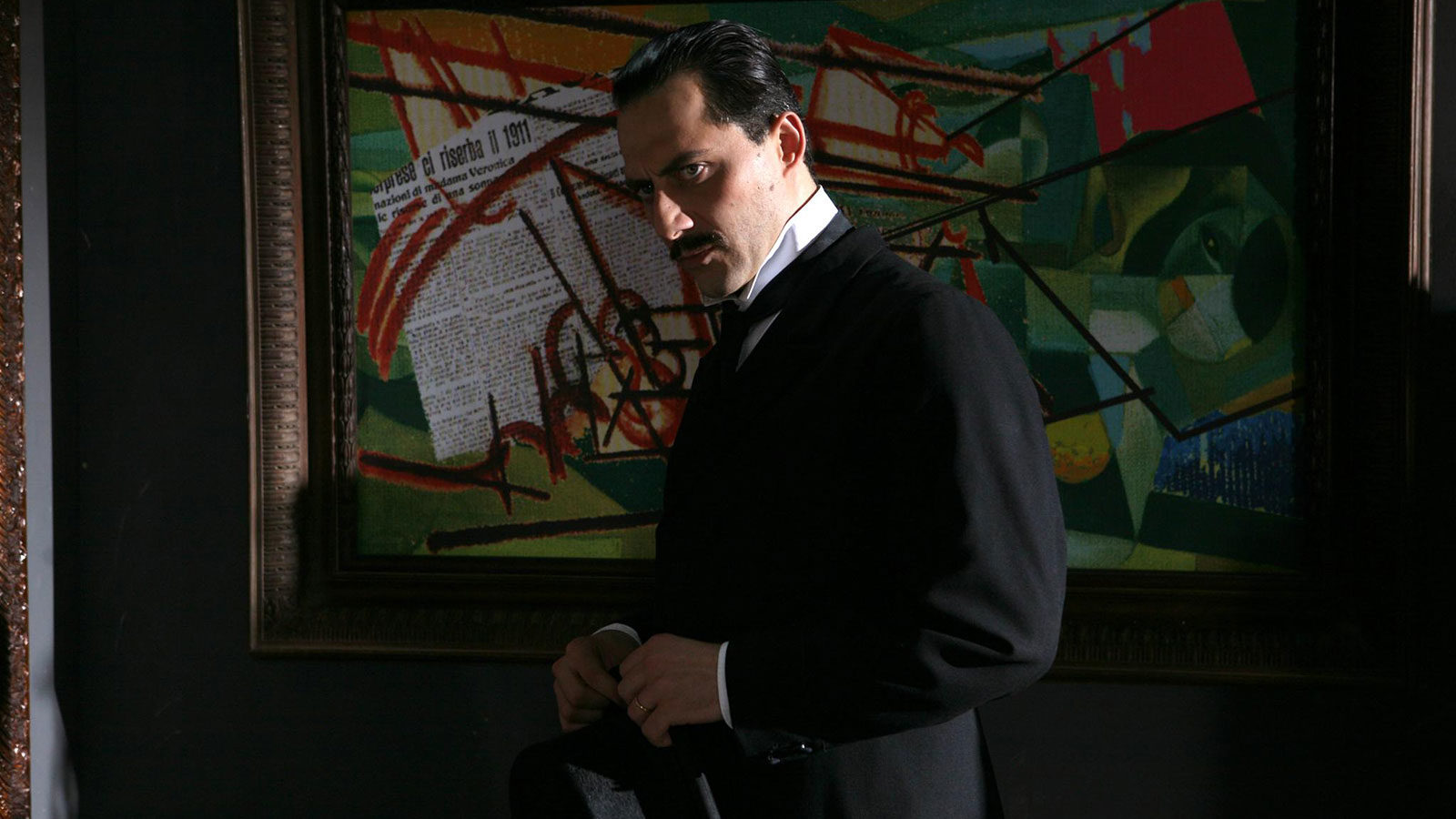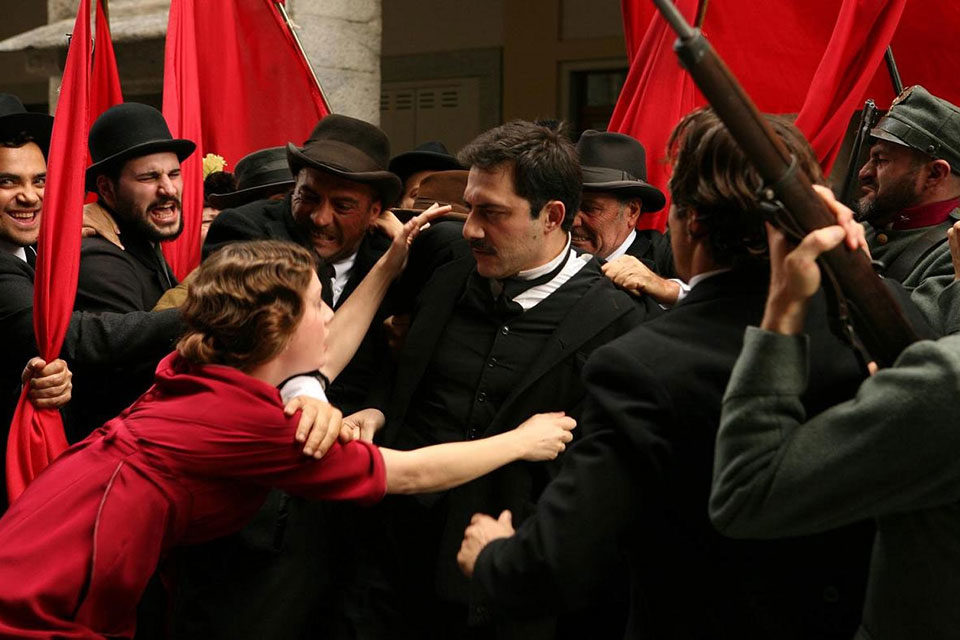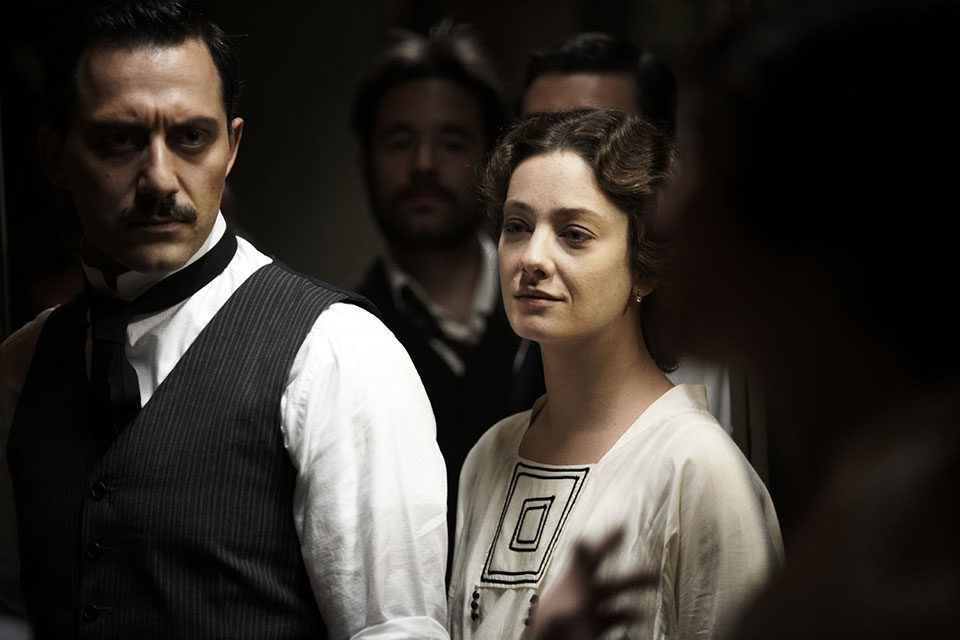By Andrew Sarris in the January-February 2010 Issue

Heir Apparent
Marco Bellocchio in the Unheroic Age of Mussolini
At one point in the Sixties, Marco Bellocchio and Ermanno Olmi were hailed in American art-film circles as post-neorealists, hence worthy successors to Rossellini, Visconti, and De Sica. Bellocchio was honored for the family sapped by epilepsy in Fists in the Pocket (65) and the left-wing ironies of China Is Near (67), while in a lower key, Olmi had focused on the seriocomic experiences of a young office worker in Il Posto (61). The Bellocchio-Olmi vogue in America was short-lived, however, because of the vagaries of Italian international film distribution. Little was heard of the duo in America until more than a decade later when Olmi resurfaced with his peasant masterpiece, The Tree of Wooden Clogs (78).

From the January-February 2010 Issue
Also in this issue
Bellocchio had an even longer hiatus, partly because his joining the Communist Party led to his disinclination to make fiction features, preferring instead to turn out a succession of short nonfiction “message” films for the Party faithful. Still, in 2002, he returned to modest prominence with My Mother’s Smile, a surrealist anti-clerical satire at the expense of the Roman Catholic Church. Its protagonist is a fervent nonbeliever engaged in removing his son from religious instruction and bemused by his family’s campaign to have his own mother canonized.
Now in the twilight of his career, Bellocchio at 70 has reappeared with Vincere, an epochal reconstruction of the tumultuous Mussolini years in the period before the two World Wars and during World War II. Using supplementary archival footage, the film recounts the story of Mussolini’s dark, secret, and brutal treatment of his liaison with Austrian-born Ida Dalser.

It is too early to tell what kind of critical attention Vincere will receive here and whether the film’s release will inspire interest in organizing retrospectives of Bellocchio’s now neglected career. At the screening I attended, one of my colleagues dismissed the film as a vintage Joan Crawford–style vehicle. Still, even Crawford never suffered as much on screen as does Giovanna Mezzogiorno in the role of Ida, who was reputed to have been Mussolini’s mistress and mother of his first son, Benito Jr. Ida was even legitimized by marriage in a church ceremony prior to his “official” marriage to another woman, Rachele Guidi (Michela Cescon), in a civil ceremony—meant to legitimize her own son by Mussolini, also named Benito! The film shows the encounter between Ida and Rachele at the bedside of the war-wounded Mussolini, who orders that the former be banished from his sight as a crazy imposter. Thereafter, Ida’s only glimpses of her former lover come from newsreels and a distant view of one of Il Duce’s balcony harangues to the adoring masses below.
In tracking Ida’s remorseless persecution by Mussolini and his minions, Bellocchio encapsulates the long-running mass hysteria of a nation enthralled by the demagogic antics of a now-seeming buffoon, who preceded Hitler by more than a decade in the use of newsreels and radio to generate mass devotion. Yet Vincere is much more than a belated denunciation of Fascism in the Italy of a bygone age. Indeed, the film is primarily a secular canonization of an indomitable woman.
One wonders if Mussolini and Hitler would have been as effective in their demagoguery in the age of television and the new media of the 21st century that have made politicians more accessible and more vulnerable, especially to ridicule. Of course, one might argue in rebuttal that no matter how accessible the media become to the general public, new rabble-rousers will arise with the ability to exploit these tools to inflame the populace with new fears and hatreds.

Filippo Timi forcefully incarnates the early Socialist, pre-Fascist Mussolini, particularly in an early scene at a public debate in which he challenges God to exterminate him within five minutes as a proof of His Existence. When Mussolini is left standing triumphant in his disbelief, a riot erupts at the site of this sacrilege.
In the end Bellocchio displays compassion even for Rachele despite her taunting and insulting Ida like a jealous fishwife at their one meeting. There is only one indisputable villain in the film, and he has been amply punished by history.



